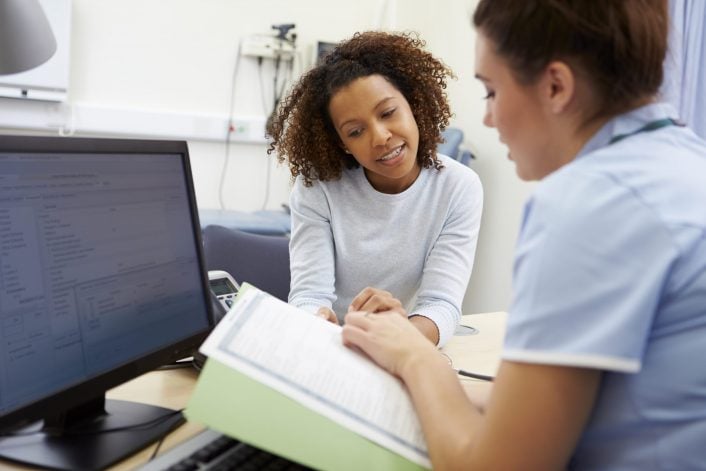
What is it?
Sexual health screening is testing for one or more sexually transmitted infections (STIs). You might need a screening test if your GP thinks there’s a risk you could have an STI. Not all STIs have symptoms. So, even if you’re feeling well, it’s important to test if you think you may have come into contact with someone who has an STI.
What will my GP do now?
Your GP will tell you when you need to come back in to have your screening test.
Your GP will also:
- Give you information about different STIs
- Tell you when you need to have the screening test
- Explain what the testing involves
- Discuss which STIs you may be at risk of
- Get your consent before doing any testing
- Work out whether you have a higher risk for some STIs
- Give you information about STI prevention
- Talk to you about contraception
What will my GP do in the future?
Your GP will ask you to make a follow up phone or face-to-face appointment to help you understand your test results. They may also ask you to come in for another appointment to discuss your results more, as well as for the treatment(s) you may need.
Your GP may also:
- Give you information about treatment(s) for your STI(s)
- Talk to you about when and how to tell your previous partners (This is called contact tracing)
- Talk to you about safe sex and STI prevention in future
What can I do?
It’s normal to feel worried or scared. Remember, your GP will support you throughout this entire process. It’s important to arrange your test sooner rather than later. The earlier you find out, the sooner you can start any necessary treatment (and prevent any diseases from spreading).
Here’s what you can do now:
- Book an appointment with your GP to have the screening test done
- Talk to your GP about STI prevention and contraception
- Stay calm and try not to assume the worst
